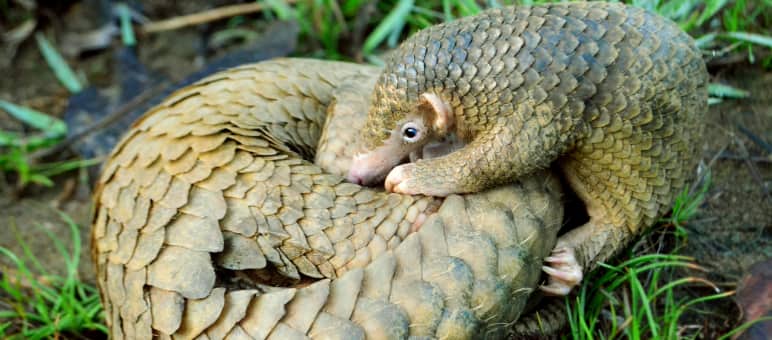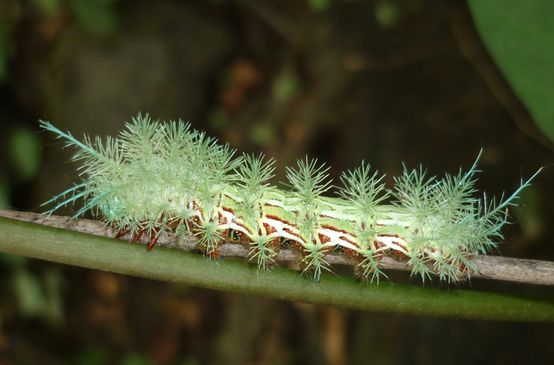
Scales of more than 1,000 poached pangolins found
China, Vietnam: Hong Kong customs officials made a gruesome discovery onboard an incoming freighter: four tons of pangolin scales. As traditional Chinese “medicine”, the shipment would have had a street value of $1.25 million. A Rainforest Rescue petition is calling on the Chinese government to strengthen protection for pangolins.
The pangolin scales were found on a freighter from Cameroon on June 23, 2016. At least one thousand African pangolins had to die for the shipment, which was declared as “sliced plastic”. “This most recent incident is another example of why stronger protections for pangolins are needed immediately,” notes the International Fund for Animal Welfare (IFAW).
The pangolin has a tragic claim to fame as the world’s most heavily trafficked animal. Pangolin meat is considered a delicacy and is often among the most costly dishes on restaurant menus in China and Vietnam. Chinese traditional medicine attributes healing powers to the pangolin’s keratin scales – even though they are the exact same material as human fingernails. The situation is most dire for the critically endangered Chinese and Sunda pangolins, which could become extinct in the very near future. To meet the huge demand of the Asian markets, poachers are increasingly focusing on African pangolins.
Things may be looking up for pangolins at the CITES World Wildlife Conference in Johannesburg in September: several countries have proposed stronger protections for all eight pangolin species. The deciding factor, however, will be the position of the Chinese government. Public pressure will be essential to putting solid protections in place – please sign our petition to the Chinese and Vietnamese governments.

Take pangolins off the menu now!
Pangolins are nearly extinct in the wild. Call on the Chinese and Vietnamese governments to stop the pangolin from being hunted to oblivion.

Biodiversity
Life on Earth originated around 4 billion years ago. Since then, an unfathomable number of species have evolved, around half of which are insects. Numerous plant and animal species have yet to be documented, and many new ones are being discovered every day.